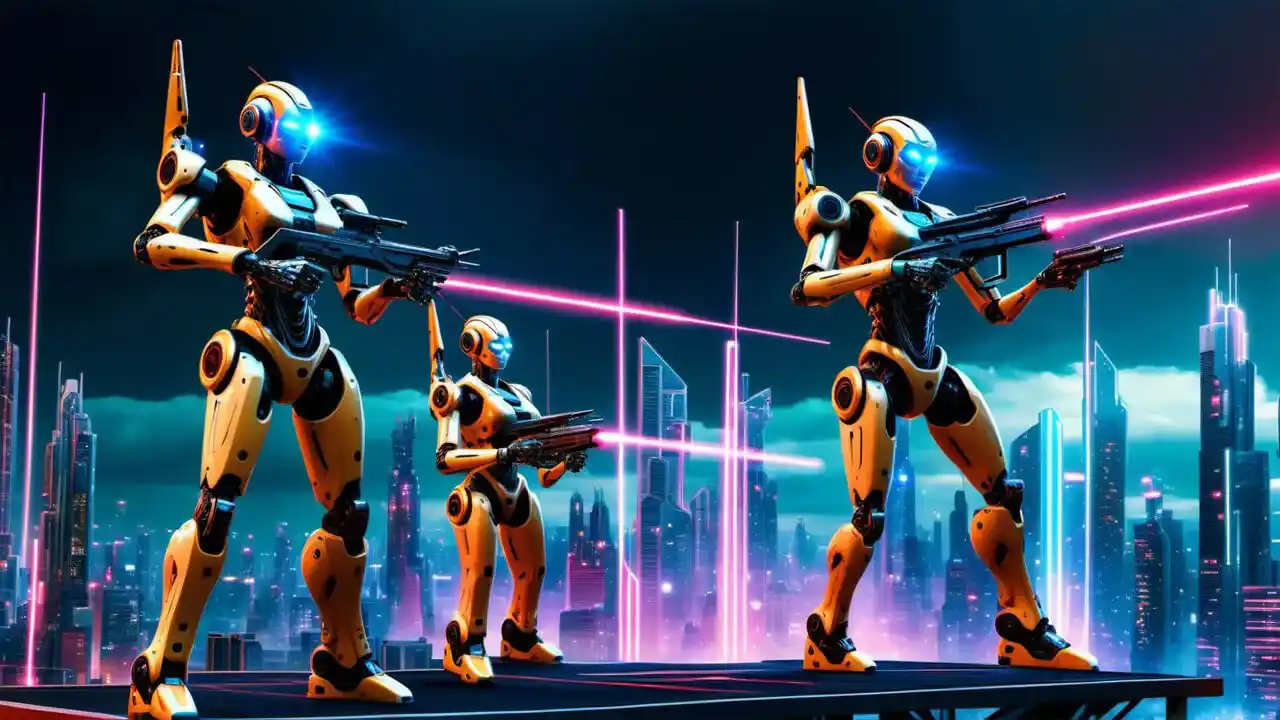
Science fiction (sci-fi) has always ignited our imaginations with tales of distant galaxies, wondrous technology, and thought-provoking futures. But its influence goes far beyond the written word and silver screen. Sci-fi has become a wellspring of inspiration for game designers, shaping everything from the fantastical worlds we explore to the mechanics that govern them.
The concept of "powering up" in the gaming world creates a sense of excitement and progress. Players constantly seek ways to enhance their abilities, unlock new levels, and overcome challenges. This feeling of empowerment is a key factor in keeping gamers engaged and motivated.
Regarding game design, the future is a powerful theme that captures the imagination of both players and creators. Science fiction offers a window into potential advancements, dystopian societies, and worlds beyond our wildest dreams. Developers can transport players to new and exciting realms by incorporating futuristic elements into games.
Science fiction, or sci-fi for short, is a popular genre that has inspired countless games over the years. From space exploration to time travel, robots, and aliens, sci-fi themes are a staple in the gaming industry. These futuristic concepts allow for limitless creativity and innovation in game design.
The grand nature of sci-fi-inspired games is truly epic. Players are immersed in vast and immersive worlds, filled with intricate storylines, jaw-dropping visuals, and mind-bending challenges. The scale and scope of these games create a sense of awe and wonder that keeps players coming back for more.
In this article, we delve into the captivating influence of science fiction on game design and development, exploring how it impacts:
World-Building: Sci-fi provides a boundless canvas for crafting unique universes. Games like Mass Effect and Fallout transport players to alien planets and post-apocalyptic wastelands, each brimming with rich lore, distinct factions, and captivating narratives.
Technological Exploration: From laser rifles in Halo to light sabers in Star Wars, sci-fi introduces us to fantastical technologies that push the boundaries of what's possible. Game developers take these concepts and translate them into playable mechanics, allowing us to wield these futuristic tools and experience their potential.
Storytelling and Themes: Sci-fi often grapples with complex themes like artificial intelligence, space exploration, and humanity's future. Games like Deus Ex and BioShock use interactive storytelling to explore these themes, prompting players to question the ethical implications of technological advancements and societal structures.
Innovation in Gameplay: Sci-fi narratives pave the way for innovative gameplay mechanics. Games like Half-Life popularized zero-gravity environments, while Portal introduced the concept of using physics-based manipulation to solve puzzles.
Visual Design: From the sleek spaceships of No Man's Sky to the haunting beauty of Nier: Automata, sci-fi offers a treasure trove of visual inspiration. Game artists translate these concepts into stunning environments, character designs, and user interfaces that immerse players in these fantastical worlds.
So, the next time you lose yourself in a world teeming with fantastical technology and otherworldly creatures, take a moment to appreciate the enduring influence of science fiction. It's a genre that continues to inspire game designers to create experiences that push the boundaries of our imagination and challenge our perspectives on the world around us.
At the core of it all is game design. The process of creating games that incorporate elements of powering up, the future, sci-fi, and epic storytelling is a complex and rewarding endeavor. Game designers work tirelessly to craft experiences that captivate players, challenge their skills, and leave a lasting impression.
* In conclusion, the influence of science fiction on game design cannot be overstated. By tapping into the themes of powering up, the future, and epic storytelling, developers can create immersive and unforgettable gaming experiences. So, power up your controllers, dive into the future, and let the sci-fi adventures begin!